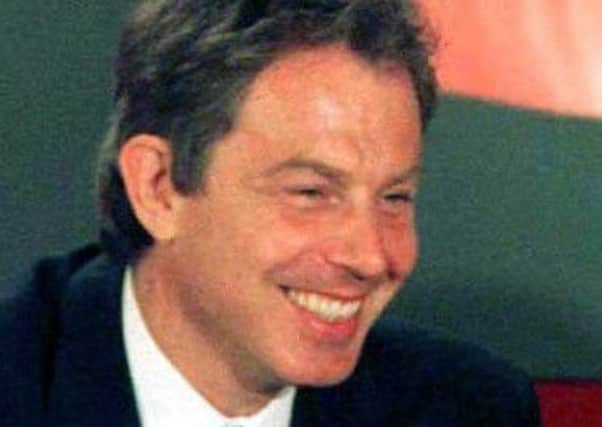Family first for moderate Blair: The week that was July 25 to 31, 1994


His move to distance himself and the party from the libertarian Left came as an opinion poll showed him towering over John Major during his honeymoon period as John Smith’s successor.
The threat perceived in this moderate, modernising Tony Blair met with two varied responses from Tories. Failed party chairmanship candidate Jeffrey Archer said he feared voters might now be bored with the Tories and feel it was time for a change.
Advertisement
Hide AdAdvertisement
Hide AdFormer Cabinet minister David Mellor also suspected that trouble might be afoot for those on the traditional right wing of politics, adding that the election of Mr Blair “…will persuade even the thickest-headed Conservative that the Labour Party is now an electable proposition.”
Meanwhile, prospects for an early peace in Northern Ireland plunged when Sinn Fein moved close to rejection of the Downing Street Ulster declaration. The party representing the IRA’s political wing said it held out no hope of an end to terrorist violence after day-long consideration of the peace initiative at a special conference in Letterkenny in County Donegal.
West Yorkshire Fire Authority, which ended its financial year more than £800,000 in pocket, was accused of crying wolf over spending cuts this week.
Firefighters and their families were caused undue anxiety, according to Tory councillor Peter Harrand. He said predictions by the authority that its service had to suffer severe cuts to survive had been unnecessary. In January, the Labour-controlled authority had said it faced charge-capping if it could not make savings of £2m.
Advertisement
Hide AdAdvertisement
Hide AdGroundbreaking research into some of the country’s toughest transport and environment problems was to be carried out in Yorkshire, it was revealed.
Ideas which could answer growing concerns about pollution and the future of public transport were to be developed in Leeds, as a result of trials carried out by independent research and design organisation CEST. These would range from the simple monitoring of exhaust fumes to the impact of the use of computerised route finders in cars.
A spokesman said Leeds had been chosen “…because it is a green city committed to protecting the environment”. Among other research to be carried out was the impact on transport of more people working at home for part of the week.
Britain and its culture were stronger for the presence of black people, one of the Church of England’s two black bishops said this week. Barbados-born Bishop of Croydon Wilfred Wood was speaking at a Black Anglicanism conference in York. He added that black Anglicans in the UK also suffered “…because we live with the pain of a disproportionately high number of black people in prison and mental institutions – and very few in positions of status and influence in society.”
Advertisement
Hide AdAdvertisement
Hide AdIn foreign news, thousands of Hutu Rwandan refugees, braving fears of Tusi guerrillas who had been ‘the enemy’ only days before, abandoned death camps in eastern Zaire and began the long trek home. US ambassador to Rwanda David Rawson returned to the war-ravaged capital Kigali, saying he wanted to demonstrate American commitment to rebuilding the country.